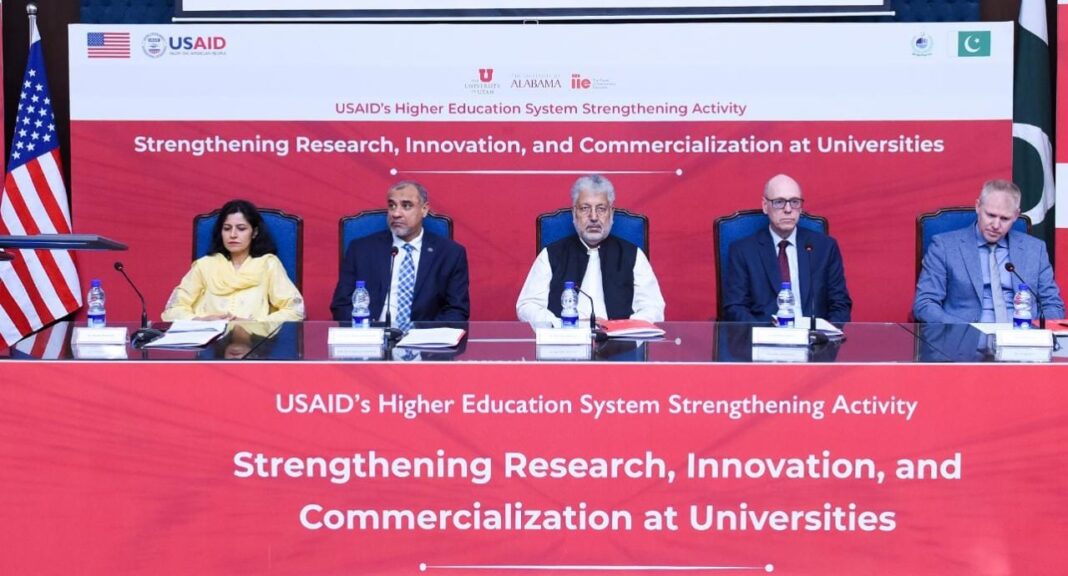By: Wazir Zafar Hassan

Media influence public opinion, disseminate information and hold those in positions of authority accountable in the current era of digitalization. However, Pakistan’s media landscape is currently confronting a dilemma that includes sensationalism and censorship. This circumstance not only undermines the credibility of journalism but also hinders the growth of an enlightened and democratic society. Pakistan’s constitution protects the independence of the press. Despite this, the situation is not commendable. To add insult to injury, the Reporters Without Borders (RSF) World Press Freedom Index for 2023 ranked Pakistan 150th out of 180 countries.
With news outlets competing for greater viewership and ratings, sensationalism has emerged as a prominent characteristic of Pakistani media. This shift has resulted in abandoning responsible journalism in favor of sensationalized headlines and controversial stories. The emphasis has shifted from providing factual reports to sensationalizing news, frequently at the expense of objectivity and accuracy. This competition for breaking news and attention-grabbing headlines has created an environment in which news organizations place greater emphasis on capturing attention than on providing balanced, reliable information. Many channels promote sensational religious debates to increase their TRPs, even though such debates promote religious intolerance.
The proliferation of sensationalism in Pakistani media has significant repercussions. It undermines public confidence in the media as consumers become increasingly skeptical of the veracity of news reports. As unverified or exaggerated claims are disseminated without appropriate fact-checking, sensationalism perpetuates the culture of misinformation. This jeopardizes not only the credibility of the media but also the democratic fabric of society.
The Pakistani media has been plagued by sensationalism, but censorship poses an equally alarming challenge. The ability of the media to operate independently and serve as a watchdog is hampered by the imposition of restrictions and the suppression of free expression. When reporting on sensitive issues or criticizing those in authority, journalists and media organizations face threats, intimidation, and even physical assault.
There are numerous manifestations of censorship, ranging from media institutions’ self-censorship to overt government intervention. The suppression of news stories deemed critical or inconvenient by the ruling elites results in a lack of transparency and accountability. This suppression of dissenting voices undermines democracy and prevents the public from gaining access to the accurate and diverse information required to make informed decisions. During the tenure of dictators in the past, levels of censorship were unimaginable. If we examine newspapers from that era, we may be surprised to discover more advertisements than actual news or even blank pages.
The media crisis in Pakistan has far-reaching consequences for society and democracy. The deterioration of journalistic standards and the dominance of sensationalism inhibit the development of an enlightened citizenry. Individuals can engage in meaningful debates, hold authorities accountable, and make well-informed decisions with access to credible information. In addition, the suppression of free expression restricts the right to dissent and undermines the foundational principles of democracy. A robust and independent media is necessary for assuring transparency, exposing corruption, and protecting citizens’ rights. When censorship restricts these liberties, it undermines the democratic process and concentrates power in the hands of a few.
Diverse parties are required to collaborate for the Pakistani media to get through its current situation. Media organizations must reorient their priorities toward ethical and responsible journalism. This includes adhering to journalistic principles, fact-checking news stories, and providing thorough and impartial coverage. By prioritizing accuracy over sensationalism, the media can restore public trust and cultivate an informed citizenry.
Additionally, the government must protect journalistic rights and press freedom. There should be laws and regulations in place to safeguard journalists from threats, harassment, and violence. Promoting media autonomy and fostering an environment conducive to free speech are essential steps toward a vibrant and accountable media landscape.
Civil society also plays a crucial role in promoting media freedom and pressuring relevant parties to resolve the issue. By actively taking diverse news and information sources, citizens can contribute to a healthier media ecosystem by raising awareness, supporting independent journalism, and demanding accountability. It is essential to critically evaluate the credibility of sources and encourage the media to prioritize quality journalism. By engaging in constructive dialogue and holding media organizations accountable, individuals can significantly influence positive change.
The world community, as a whole, and international organizations, are responsible for taking action to address the situation in Pakistani media. They can provide help and resources to independent media institutions, promote media literacy programs, and apply diplomatic pressure on governments to respect and defend the freedom of the press. Cultivating an atmosphere receptive to responsible journalism and free speech can be aided through local and worldwide collaboration.
In conclusion, the situation in Pakistani media, characterized by sensationalism and censorship, poses substantial obstacles to developing an enlightened and democratic society. The rise of sensationalism undermines the credibility of journalism, while censorship stifles free expression and hinders the media’s watchdog function. There are far-reaching consequences for society and democracy, including the erosion of public trust and the restriction of fundamental rights.
We can create a media landscape that upholds the principles of truth, accountability, and democracy by working together. Collective efforts are required to traverse the path from sensationalism to responsible journalism and from censorship to the free movement of information. Let us unite in pursuing a media landscape that serves the public interest and the ideals of a flourishing democracy.
The writer is a freelance columnist. He can be reached at [email protected]







